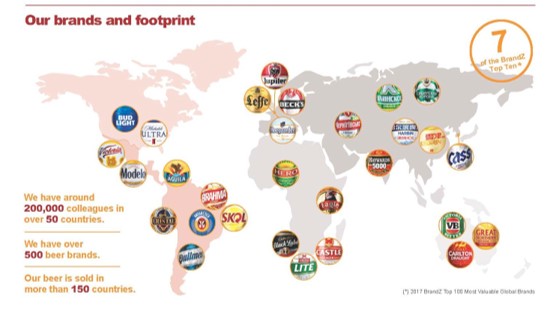If you are connected with the world of beer, brewing, or hops, you may have heard of the campaign “Take Craft Back,” a campaign organized by the Brewer’s Association, a trade group of brewers focused on craft and home brewing, to buy out Anheuser-Busch InBev (ABI). ABI is a Belgian-Brazilian-American brewing conglomerate which controls 70% of the US beer market alongside Molson Coors.

ABI is currently valued at $213 billion, which is the alleged goal of the Take Craft Back campaign, which they describe as the world’s largest crowdfunding effort. On their website, they estimate it would take $653.57 from everyone in the United States to buy all the shares of ABI at their current (October 2017) price. Astute readers might realize that it would only take $106.5 billion, in order to buy the 50 percent ownership required to control a publicly-traded company, but that’s only if the campaign actually intended to buy ABI.
With very little digging, it becomes apparent that buying ABI isn’t the real goal with Take Craft Back. Even the chief economist for the Brewer’s Association, Bart Watson, jokes about what else you could buy with $213 billion, including “every single NFL, MLB, and NBA franchise ($167.5 billion)… [or] the world’s largest hop farm ($35 million).” Instead the goal is to promote independence, which is part of how the Brewer’s Association defines what is and isn’t a craft brewery. Their key definitions are:
- Small: Annual production of 6 million barrels of beer or less (approximately 3 percent of U.S. annual sales).
- Independent: Less than 25 percent of the craft brewery is owned or controlled by an alcohol industry member that is not itself a craft brewer.
- Traditional: A brewer that has a majority of its total beverage alcohol volume in beers whose flavor derives from traditional or innovative brewing ingredients and their fermentation.

This campaign also features a new seal for beer labels which is intended to help beer drinkers differentiate between “real” craft brewers, and those who have been bought out by large companies, such as Goose Island (Chicago), Elysian (Seattle), Breckenridge Brewing (Colorado), and 10 Barrel Brewing (Portland and Bend, OR). These sales were accompanied by their share of outrage, and even a beer with the tagline, “Corporate Beer Still Sucks.” As of the posting of this article, 2,487 breweries had adopted/pledged to adopt the seal, with many of those occurring within the first 24 hours of the campaign’s launch. The Brewers’s Association also provides tools for breweries to market this new seal and their independence from “Big Beer.” ABI’s craft beer division, called The High End, actually issued a response to the Take Back Craft campaign, a video featuring brewers of formerly craft breweries belittling it.
Much of the criticism of “Big Beer” comes from their ability to muscle out competition by drawing on vast capital reserves and taking advantage of very large economies of scale. Another criticism is that it limits consumer choice, innovation, and potentially quality. While the market for beer isn’t exactly an oligopoly, it’ll be interesting to see what happens as the biggest players will likely continue to acquire craft breweries to offset declining sales of their traditional beers.
While it doesn’t touch on craft beer exactly, I thought you might enjoy this clip from John Oliver on corporate consolidation.
*Warning: This clip contains strong language which may be offensive to some viewers*
PS. If you are against consolidation, you may be interested to know that the Brewer’s Association was actually established in 2005 as a merger between the Association of Brewers and the Brewers’ Association of America. Though they also host the Great American Beer Festival and support the American Homebrewers Association, so maybe that’s enough penance for their consolidation.
